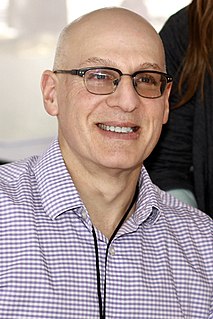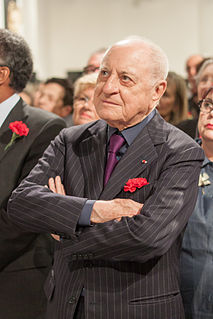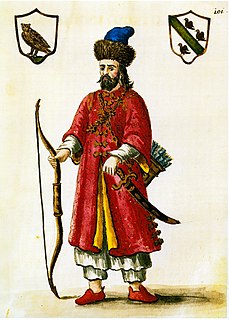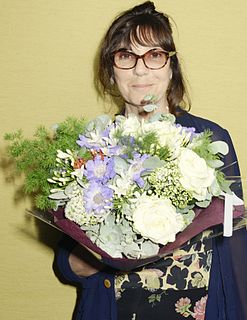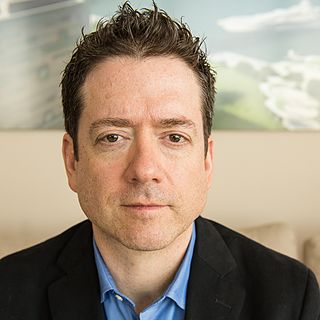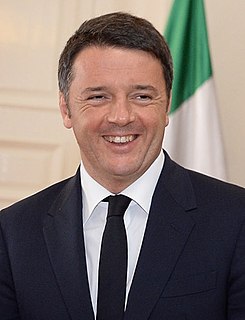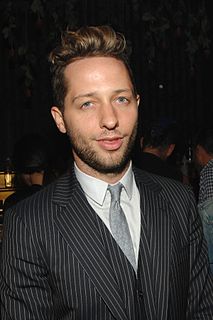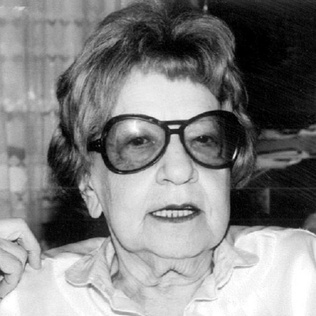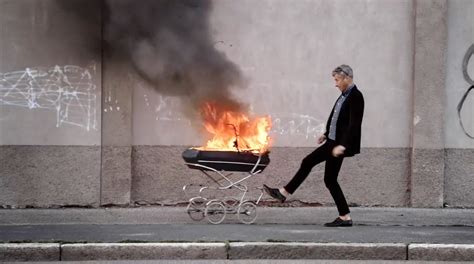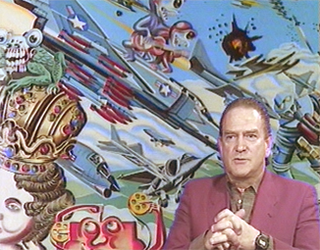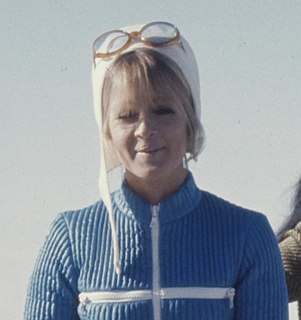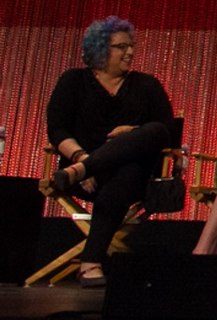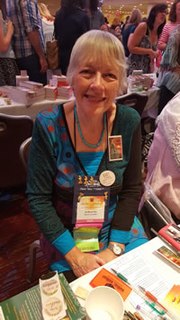Top 234 Venice Quotes & Sayings - Page 4
Explore popular Venice quotes.
Last updated on April 21, 2025.
I intend Deaths in Venice to contribute both to literary criticism and to philosophy. But it's not "strict philosophy" in the sense of arguing for specific theses. As I remark, there's a style of philosophy - present in writers from Plato to Rawls - that invites readers to consider a certain class of phenomena in a new way. In the book, I associate this, in particular, with my good friend, the eminent philosopher of science, Nancy Cartwright, who practices it extremely skilfully.
Presenting Aschenbach as a composer - based on Mahler - leads to some dreadful scenes (especially those in which Aschenbach is berated by his student), and it surely distorts the character Mann created. Yet, we know that Mann's novella was based on a holiday in Venice he took with his wife and brother, and that while he was there he followed the reports in the German newspapers, describing the dying Mahler's progress as he returned from New York to Vienna.
On December 12, 1829, Paganini wrote his friend Germi: "The variations I've composed on the graceful Neapolitan ditty, 'Oh Mamma, Mama Cara,' outshine everything. I can't describe it!" He was writing from Karlsruhe, in the midst of his triumphal tour through Germany. That letter marks the earliest known mention of the variations that would become famous as "The Carnival of Venice." At the time of his letter, Paganini had already performed the piece in at least four concerts. From then on, it would be one of his most popular compositions.
It has been my fortune to love in general those men most who have thought most differently from me, on subjects wherein others pardon no discordance. I think I have no more right to be angry with a man, whose reason has followed up a process different from what mine has, and is satisfied with the result, than with one who has gone to Venice while I am at Siena, and who writes to me that he likes the place.
I like to think that people can see that and appreciate that idea and then, by some mechanism of wearing the fragrance, sort of carry that idea with them in their own life. Whether it's a weekend in Louisiana or in New York City or in Venice, Italy, or wherever they may be. I think there's something kind of fascinating and powerful about that.
I don't remember reading much at all during the writing of Eileen. I go through several years-long dry spells and I don't feel like reading at all. I was working part-time for a guy in Venice, California while I drafted Eileen. He wanted help in writing his memoir. The research had a lot to do with the 60s, so that must have informed my sense of the place and time in my novel, and perhaps even the memoir point-of-view. He was also from New England. It was a fun job. I learned a lot about motorcycle clubs, Charles Manson, hopping freight trains.
Sundance [festival] is all your Hollywood buds and buddies and rolling out and high-fiving and "Hell, yeah. Here comes the movie," and in Venice, it's very elegant, and respectful...It's decadence. It's such a fun way to formalize a movie that is for us a down-and-dirty, gritty movie. And to see it with the red carpet, and rolling up in a Maserati.
It is not surprising that only one medieval state, Venice, long possessed anything clearly identifiavble as a navy in this sense. We shall see that no state in the British Isles attained attained this level of sophistication before the 16th century, and no history of the Royal Navy, in any exact sense of the words, could legitimately begin much before then. This book, which does, is not an institutional history of the Royal Navy, but a history of naval warfare as an aspect of national history. All and any methods of fighting at sea, or using the sea for warlike purposes, are its concern.
I read somewhere that everybody on this planet is separated by only six other people. Six degrees of separation between us and everyone else on this planet. The President of the United States, a gondolier in Venice, just fill in the names. I find it extremely comforting that we're so close. I also find it like Chinese water torture, that we're so close because you have to find the right six people to make the right connection... I am bound, you are bound, to everyone on this planet by a trail of six people.
I also want to raise the possibility that there are, in the very long term, "virtue effects" in economics- for instance that widespread corrupt accounting will eventually create bad long term consequences as a sort of obverse effect from the virtue-based boost double-entry book-keeping gave to the heyday of Venice. I suggest that when the financial scene starts reminding you of Sodomand Gomorrah, you should fear practical consequences even if you like to participate in what is going on.
There was once a great actor named George C. Scott. He was on stage in the Delacourt Theater in Central Park, where they do Shakespeare every summer, and he was playing Shylock in The Merchant of Venice. At one point he took the robes he was wearing and just started flipping them up in the air, out of nowhere. And later, an actor said to him, "What was that, George, what were you doing?" And he said, "They were sleeping." You're always trying to catch them.
Every painter must traverse for himself that distance from Paris to Aix (where Paul Cézanne worked a lot, fh) or from Venice to Toledo (where El Greco painted a lot, fh). Expression is for one knowing its own pivot. Every expressor relates solely to himself - that is the concern of the individualist.
That's how I am and how I've always looked at the world. I understood what the pavilions were before I came to Venice, and I knew that wasn't going to be enough for me. I wanted to extend this conversation into something I call urgency. There is urgency with people in crisis. Some communities - often the black community - just live in this urgency.
When 'Mortal Kombat' came out, I was living in an apartment in the Venice Canals in L.A. I didn't get paid a huge amount of money, so I had a nice apartment, but I couldn't afford to have it furnished. It was kind of like Robert De Niro's apartment in 'Heat': It looked like I was ready to walk away from it in ten seconds, because there was nothing.
Dearest Charles-- I found a box of this paper at the back of a bureau so I must write to you as I am mourning for my lost innocence. It never looked like living. The doctors despaired of it from the start... I am never quite alone. Members of my family keep turning up and collecting luggage and going away again, but the white raspberries are ripe. I have a good mind not to take Aloysius to Venice. I don't want him to meet a lot of horrid Italian bears and pick up bad habits. Love or what you will. S.
There was an exchange between me and Andy Warhol. We met, we liked each other, we appreciated each other. He would come to us for Easter in Marrakech. In September we would meet up in Venice. And every time I went to New York I would spend some time with him at the Factory, where we would have dinner together. He's a man that I admired deeply. He shook up the notion of painting - not as much as Marcel Duchamp had done, but he was part of the same general movement. And then we both admired art deco.
I believe it was God's will that we should come back, so that men might know the things that are in the world, since, as we have said in the first chapter of this book, no other man, Christian or Saracen, Mongol or pagan, has explored so much of the world as Messer Marco, son of Messer Niccolo Polo, great and noble citizen of the city of Venice.
I traveled for seven years, and when I came back home I was completely lost. I didn't know what to do with my life, so I decided to let people decide for me. For month I followed strangers on the street. For the pleasure of following, not because the party interested me. I photographed them without their knowledge, took note of their movements, and finally lost sight of them. At the end of January 1980, I chose a man and followed him to Venice. That's how I started. That's all.
Civilization is an active deposit which is formed by the combustion of the Present with the Past. Neither in countries without a Present nor in those without a Past is it to be encountered. Proust in Venice, Matisse's birdcages overlooking the flower market at Nice, Gide on the seventeenth-century quais of Toulon, Lorca in Granada, Picasso by Saint-Germain-des-Prés: there lies civilization and for me it can exist only under those liberal regimes in which the Present is alive and therefore capable of assimilating the Past.
The first seastead happened fifteen centuries ago. The result was the most beautiful city in the world, Venice. People who were sick of their violent governments fled to the water, where they built civilization on stilts. That startup society - a free city-state on the water - became so successful it dominated the Mediterranean for a thousand years.
I was shooting on The Mindy Project while I was editing Alex of Venice, which was the stupidest thing I could've done. It was like having two full-time jobs. But in editing some characters were dropped, some storylines were dropped. It just starts dictating what it's supposed to be.It's scary, but fun to try to be brave and to "kill your darlings." To get rid of the stuff that you were like, "Oh, I'll never get rid of that. I love that. As long of a take as it is, I'm gonna keep that in."
Venice is ever the fragile labyrinth at the edge of the sea and it reminds us how brief and perilous the journeys of our lives are; perhaps that is why we love it so. City of plagues and brief liaisons, city of lingering deaths and incendiary loves, city of chimeras, nightmares, pigeons, bells. You are the only city in the world whose dialect has a word for the shimmer of canal water reflected on the ceiling of a room.
Quentin [Tarantino] called me and said: "Yeah, you've got to be in my movie. You've got to be in Death Proof." But he made me audition. I was like: "Dude, I don't even want to do this..." So I left the casting of Hostel: Part II to drive to Venice, where Quentin was holding his casting, and the person ahead of me was Derek Richardson from Hostel 1 and he was like: "Dude, what are you doing here?" I said: "Don't ask!"
New England is a finished place. Its destiny is that of Florence or Venice, not Milan while the American empire careens onward toward its unpredicted end. . . . It is the first American section to be finished to achieve stability in the conditions of its life. It is the first old civilization, the first permanent civilization in America.
I have no idea what a high school party looks like. I was just with my friend, and we were walking down Venice and there was this gathering of people playing Bongo drums, and so after dinner we sat down with them and played Bongo drums for a while. That's the closest thing I've gotten to a high school experience, meeting strangers and just hanging out with them.
There were two practical reasons we moved to Venice. One was that there was an artists movement and a countercultural movement. Lots of people we might want to hire lived in the area. We also wanted to buy in a lower rent area that looked like it was going to be gentrified so that we could eventually sell the studio for more money.
My loving friend, you see, my life was never given a foundation, no one was able to imagine what it would want to become. In Venice there stands the so-called Ca del Duca, a princely foundation, on which later the most wretched tenement came to be built. With me it's the opposite: the beautiful arched elevations of my spirit rest on the most tentative beginning; a wooden scaffolding, a few boards....Is that why I feel inhibited in raising the nave, the tower to which the weight of the great bells is to be hoisted (by angels, who else could do it)?
You travel the world, you go see different things. I like to see Shakespeare plays, so I'll go - I mean, even if it's in a different language. I don't care, I just like Shakespeare, you know. I've seen Othello and Hamlet and Merchant of Venice over the years, and some versions are better than others. Way better. It's like hearing a bad version of a song. But then somewhere else, somebody has a great version.
I am firmly convinced, therefore, that to set up a republic which is to last a long time, the way to set about it is to constitute it as Sparta and Venice were constituted; to place it in a strong position, and so to fortify it that no one will dream of taking it by a sudden assault; and, on the other hand, not to make it so large as to appear formidable to its neighbors. It should in this way be able to enjoy its form of government for a long time. For war is made on a commonwealth for two reasons: to subjugate it, and for fear of being subjugated by it.
Decade after decade, artists came to paint the light of Provincetown, and comparisons were made to the lagoons of Venice and the marshes of Holland, but then the summer ended and most of the painters left, and the long dingy undergarment of the gray New England winter, gray as the spirit of my mood, came down to visit.
The names of great painters are like passing-bells: in the name of Velasquez you hear sounded the fall of Spain; .in the name of Titian, that of Venice; in the name of Leonardo, that of Milan; in the name of Raphael, that of Rome. And there is profound justice in this, for in proportion to the nobleness of the power is the guilt of its use for purposes vain or vile; and hitherto the greater the art, the more surely has it been used, and used solely, for the decoration of pride or the provoking of sensuality.
Solely in the world of languages is the amateur of value. Well-intentioned sentences full of mistakes can still build bridges between people. Asking in broken Italian which train we are supposed to board at the Venice railway station is far from useless. Indeed, it is better to do that than to remain uncertain and silent and end up back in Budapest rather than in Milan.
I'm criticizing the way they are perceived. I was going through a book of Marina Abramovic and Ulay's 1970s performance work the other day. These people did two, even three Documentas or Venice Biennales over the course of a decade without any fuss. They would just treat it as any of their other engagements, with the same level of dignity and commitment they'd reserve for a one-day event in a small gallery on the Austrian mountains.
The collages I never wanted to sell. I thought it was a very private thing, so I kept the collages. Then, in the end, I had a big collage in the Pinault Collection in Venice and the director of the [Centre] Pompidou said, "Did you make big collages like this in the '60s?" I said yes, so he came to the studio and said, "Let's make an exhibition in the Pompidou."
Part of my methodological approach is made explicit when I discuss ways in which literature can have philosophical significance. Literature doesn't typically argue - and when it does, it's deadly dull. But literature can supply the frame within which we come to observe and reason, or it can change our frame in highly significant ways. That's one of the achievements I'd claim for Mann, and for Death in Venice.
Rent Control was an interesting movie. It was directed by... I had done a couple of plays off Broadway, and this Italian director came, his name was Gian Luigi Polidoro, and he determined I was the person to play the lead in his low-budget comedy. He'd won an award at the Venice Film Festival, and... He was, y'know, a skilled director.
In the city of flesh I travel without maps, a worried tourist: and Ottilie was a very Venice. I stumbled lost in the blue shade of her pavements. Here was a dreamy stillness, a swaying, the splash of an oar. Then, when I least expected it, suddenly I stepped out into the great square, the sunlight, and she was a flock of birds scattering with soft cries in my arms.
You have to know accounting. It's the language of practical business life. It was a very useful thing to deliver to civilization. I've heard it came to civilization through Venice which of course was once the great commercial power in the Mediterranean. However, double entry bookkeeping was a hell of an invention.
The building I most admire is the Doges Palace in Venice, both by day and by night. Looking at it from the lagoon, it resembles a floating kilim carpet. I love all the bridges which connect houses, people, gardens and palaces. I also love moats to isolate yourself. A ha-ha for secrecy, as in every English country garden.
When I got out of college in 1991, I had four jobs in four different parts of L.A. There was I Love Juicy, a smoothie bar in Venice, and the Videotheque on Sunset Boulevard, across from the old Tower Records. I was also an intern at the 'Los Angeles Reader' in the Miracle Mile and at 'High Performance' magazine downtown.
In the beginning we were creating our music, ourselves, every night . . . starting with a few outlines, maybe a few words for a song. Sometimes we worked out in Venice, looking at the surf. We were together a lot and it was good times for all of us. Acid, sun, friends, the ocean, and poetry and music.
Venice is truly magical. The Devon-Dorset coast in England is so beautiful, and its sandstone cliffs are full of fossils, which can make for some very exciting walks. And I love Halifax, a great place with all the modern things you could want, plus a wonderful sense of history, and, of course, the sea.
In the '80s, the world I was living in wasn't this world of consumption. There wasn't that much to buy, really. Actually I'm still struck by that. There's not an awful lot of stuff I want. Somebody quotes Diogenes, who's walking around saying, "How many things there are in the marketplace of which Diogenes has no need." I always feel that. Except of course when you're living in Venice, California and you see all these lovely houses!
We danced our youth in a dreamed of city, Venice, paradise, proud and pretty, We lived for love and lust and beauty, Pleasure then our only duty. Floating them twixt heaven and Earth And drank on plenties blessed mirth We thought ourselves eternal then, Our glory sealed by God’s own pen. But paradise, we found is always frail, Against man’s fear will always fail.



